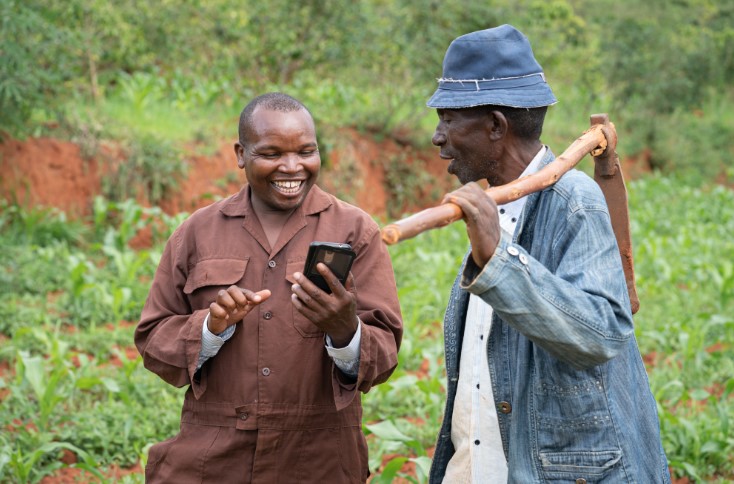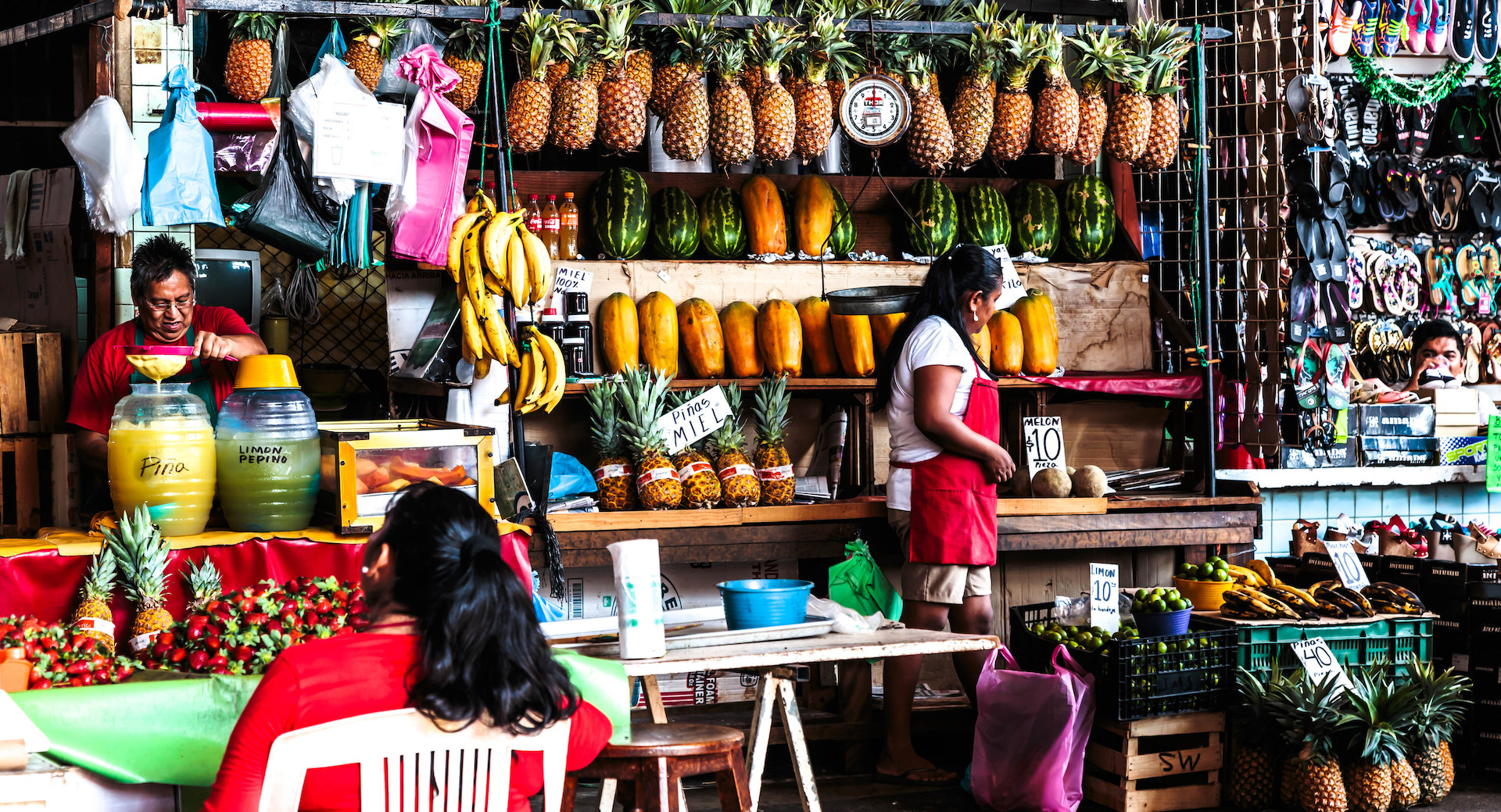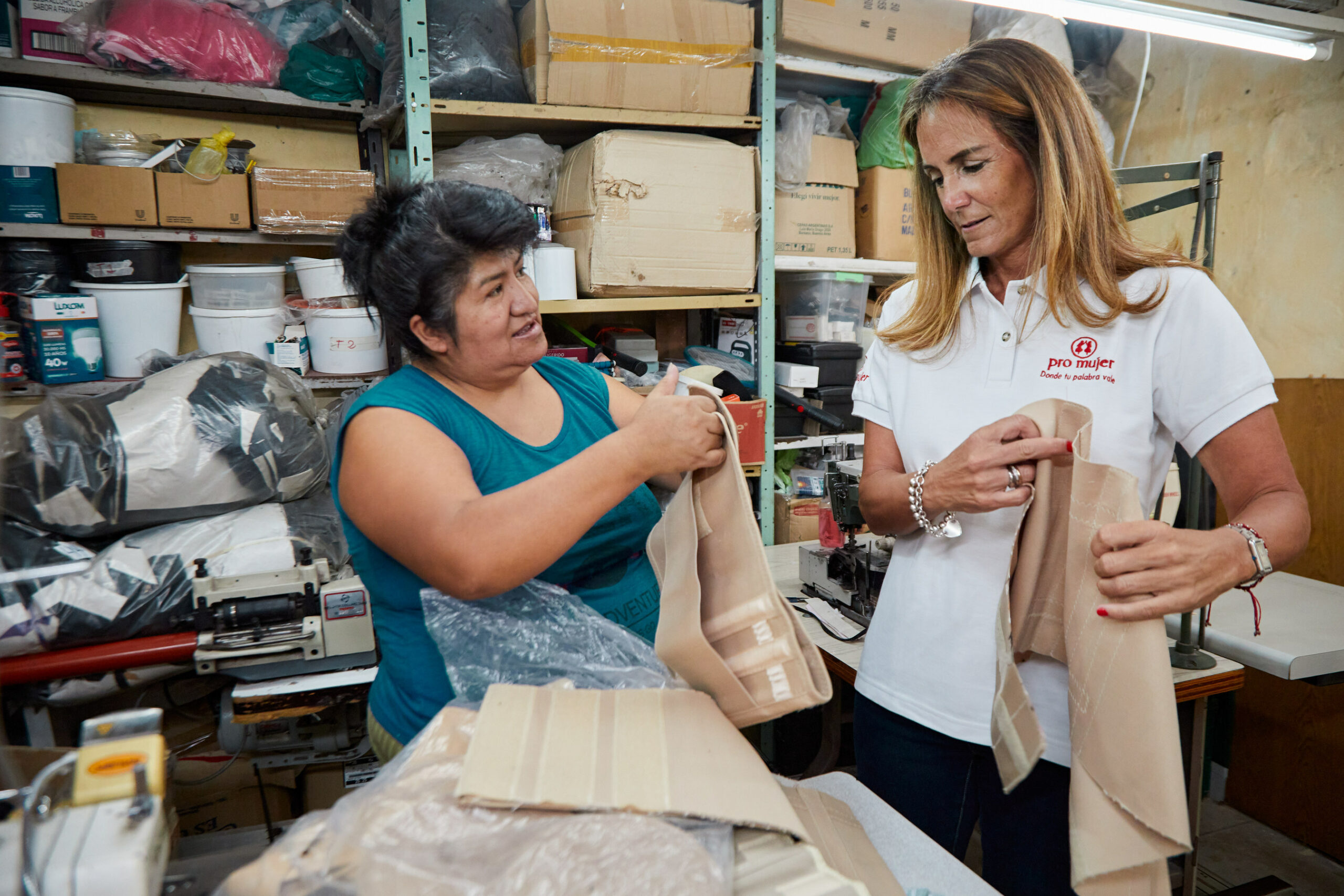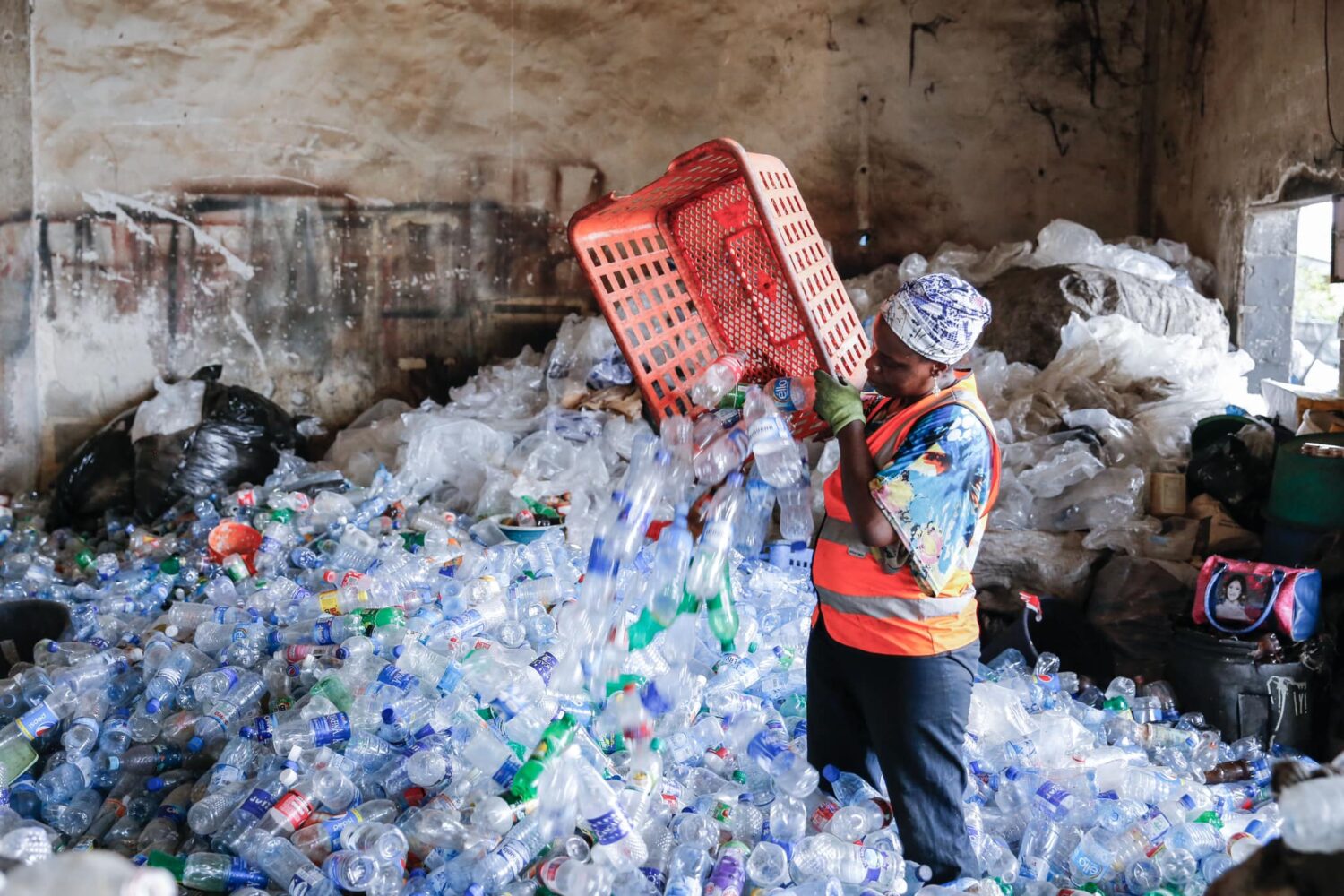ImpactAlpha, March 22 – Financial technology firms have leveraged billions of data points across mobile phones and social media to transform loan underwriting across Africa. Data from those users is providing fintech service providers real-time insight into something else: the accelerating climate impacts on farmers, the urban poor and Africa’s emerging middle class.
At the same time that quick and cheap fintech platforms are accelerating financial inclusion for more than 1.7 billion people worldwide, such an up-close view of climate risks could potentially endanger access to credit for some, such as farmers exposed to drought. But those same risks provide savvy entrepreneurs with opportunities to engineer creative financial products to boost vulnerable individuals’ and small businesses’ resilience to climate shocks.
Nairobi-based ACRE Africa and Pula, Bamako, Mali-based Oko Finance and other African tech companies are facilitating access to crop insurance to help smallholder farmers secure their livelihoods against flood and drought.
Demand for climate data is growing across Africa’s supply chains, to underwrite microinsurance for logistics operators, hedge supply-chain risk and create a variety of derivatives and other sophisticated products. Nairobi-founded and New York-based Gro Intelligence and other climate aggregators are collecting weather and climate data and using artificial intelligence to forecast risk scenarios across food and agriculture and other sectors.
“Fintech can supercharge the reach and affordability of solutions that have the potential to reduce the exposure of climate vulnerable populations and help them with preparedness,” said Bethany Kanten of BFA Global, which backs inclusive tech startups in underserved communities through the Boston-based advisory firm’s Catalyst Fund.
Kanten joined a panel at the recent Sankalp Africa forum that sounded both an alarm and an exhortation for fintech ventures, intermediaries and investors in Africa to grapple with climate change across their offerings and geographies.
“It’s an imperative for the long-term sustainability of their business models,” Kanten argued. “The solutions they offer are going to become less appropriate if they don’t take the changing climate into account. Many of their customers are really highly exposed to climate risks.”
Risk underwriting
Fintech ventures have taken advantage of increasingly ubiquitous mobile access, business digitization tools and untapped sources of credit risk data to reach un- and underbanked people and businesses. Climate-smart fintech fintech ventures and intermediaries are adding climate-related risk metrics like hyper-local weather reports and rainfall patterns into their analytics and underwriting models.
Nairobi-based Insurance tech venture Pula is leveraging government programs and non-governmental funding schemes to deliver affordable insurance coverage to smallholder farmers. In Bamako, Oko Finance is leveraging satellite data and partnering with mobile operators to design and deliver affordable crop insurance to some of the most underserved small farmers, while facilitating access to credit via partner lending institutions.
ACRE Africa, a spinoff of the Syngenta Foundation and the Global Index Insurance Facility, began selling affordable crop insurance in Kenya 2009 after noticing that small and mid-size farms were unable to pay for insurance offered by traditional financial institutions. In Kenya, ACRE Africa began distributing insurance “scratch cards” in bags of seeds, which farmers could redeem for coverage through their mobile phones. Its first product cost $0.50—about 10% of a bag of seeds.
“We used existing financial ecosystem tools – for example mobile money – through which fintech companies are lending to farmers, to design coverage that smallholder farmers can afford,” ACRE Africa’s Patrick Sampao told ImpactAlpha. Farmers already used scratch cards to top up airtime and mobile money. “The customer journey was short, and the cost of delivering the product was low.”
Simple mobile transactions provide a wealth of data about where farmers are based and the personal and other financial information that is increasingly tied to individual mobile phone numbers. That in turn helps ACRE Africa finetune its insurance offerings and facilitate access to farm inputs such as climate-resilient seeds. ACRE Africa also supplies data to traditional financial institutions to encourage them to expand the products and services they offer to smallholder farmers.
“By the time the farmer has finished just that one action on the back end, we have so much information about them,” said Sampao.
Luxury to necessity
There are plenty of gaps yet to fill in the roster of products needed for climate resiliency. In Kenya, for example, many affordable crop insurance policies that covered farmers for drought excluded damages from locust swarms, which last year decimated more than 175,000 hectares of farmland and are ravaging crops across East Africa again this year. Also, standalone insurance can be a difficult sell for customers unfamiliar with insurance and reluctant to pay upfront for products they may never use.
But farmers that do mitigate their risks with insurance have more confidence to invest in their farms, Sampao said. “That means a larger loan portfolio for financial institutions,” he added.
Fintech ventures, with their creative and ever-evolving data sets and underwriting methodologies, nimble business models, and increasingly abundant investment capital, are well positioned to expand the range of climate-related financial services in emerging markets. Flush with capital, Africa’s fintech giants like FlutterWave, PayStack and InterSwitch may be best positioned to turn climate risk into opportunity.
Many have yet to proactively incorporate climate risks into their products, however.
“Luxury is the word I keep hearing over and over—‘This is a luxury we can’t afford to spend time on with all of these other priorities,’” says Dan Block of Mercy Corps Ventures, an emerging markets impact investor.
For example, Mercy Corp Venture portfolio company ImaliPay, which provides financial services to Uber drivers, motorcycle taxi drivers and other workers in East Africa’s gig economy, isn’t currently factoring climate impacts into its services. But the opportunity is there, says Block.
“As governments put in place regulations around emission standards, for instance, or require the transition to electric vehicles, low-income workers that don’t have access to financial services will be most affected,” Block explains. ImaliPay and other financial services providers could “allow those populations, through their suite of services, to respond to and continue to be active, thriving members of an economy.”
Mercy Corps Ventures has invested in roughly 20 early-stage impact companies focusing on the future of work, last-mile logistics, smallholder agriculture and financial inclusion. It has become clear to the impact VC fund’s team that the effects of climate change will be pervasive across its portfolio.
Lagos-based venture capital firm EchoVC, which has invested more than $40 million in 36 companies, is thinking similarly. The VC firm is building a growing portfolio of climate-related fintech ventures and data aggregators, including Gro Intelligence and iBUILD, which enables banks and housing funds to track the flow of funds for the rebuilding of homes and infrastructure after natural disasters, like earthquakes or floods.
EchoVC’s Tsendai Chagwedera says Gro Intelligence reflects the growing value of precise climate data up and down Africa’s supply chains. Insurance companies, for example, could offer logistics operators more agile and cost-effective insurance for transporting crops from rural Nigeria to processing centers. “Rather than buying general, year-round insurance, they could buy products tailored for specific crops, which could be easily turned on and off during certain months in certain regions.”
And consumer goods companies could model inventory levels or price volatility for, say, palm oil or cocoa beans in Ghana, based on a detailed picture of growing conditions. “This not only allows the companies to quantify their exposure but also allocate funds to mitigate and adjust that exposure,” Chagwedera explains. “That in turn creates impact by helping mitigate food shortages or food price volatility as a result of climate events.”
Block observes that the intentional focus of fintech firms on climate-related impacts is still in its early days. He adds that investors also need to apply a “climate lens” more broadly across their investment strategies.
“We can’t be looking at climate change as one silo. It has to be cross-cutting,” he says. “If we’re not investing in this, then we’re missing out on opportunities and exposing ourselves to significant risks that we’re not seeing.”











